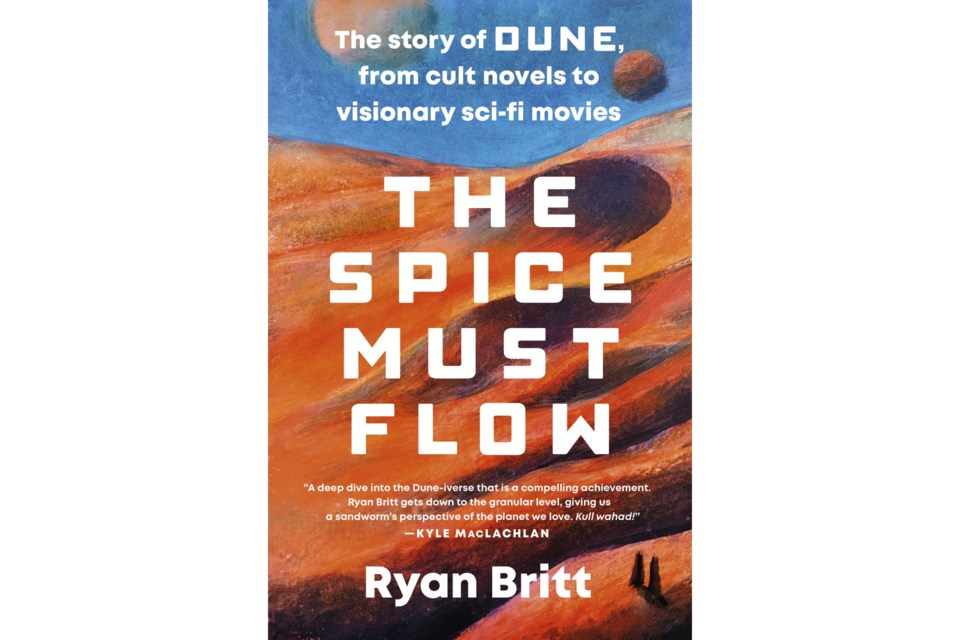NEW YORK (AP) ‚ÄĒ The saga of how slowly permeated the mainstream over decades is a tale with almost as many twists and turns as ‚ÄúDune‚ÄĚ itself, and author Ryan Britt recounts it in the lively and entertaining ‚ÄúThe Spice Must Flow.‚ÄĚ
As Britt details, author Frank Herbert began to plot the novel ‚ÄĒ about a young boy named Paul Atreides who may be the future leader of the galaxy ‚ÄĒ after doing research for a nonfiction article about a manmade technique to stabilize sand dunes.
Much of the action takes place on Arrakis, a desert planet that has reserves of a precious natural resource, spice, and is infested with sandworms, Herbert’s iconic dune creature.
Herbert had authored sci-fi short stories and novels before, but the only place he could find willing to publish ‚ÄúDune‚ÄĚ in 1964 was an auto-repair book publisher.
But slowly ‚ÄúDune,‚ÄĚ and its sequels caught on. Different aspects of the novel ‚ÄĒ a swashbuckling adventure tale, an environmental treatise and a polemic against combining religion and politics, all in one ‚ÄĒ appealed to different people at different times throughout the decades.
But bad timing plagued the book‚Äôs mainstream success. The first two Dune books sold slowly, but the third sequel ‚ÄúChildren of Dune,‚ÄĚ was a massive bestseller when it was published in 1976 and proved a sci-fi story could breakthrough to the mainstream. But everyone forgot about that a few months later when ‚ÄúStar Wars‚ÄĚ ‚ÄĒ itself influenced by ‚ÄúDune‚ÄĚ ‚ÄĒ hit theaters and became a massively successful space opera.
Britt details the many attempts to bring the story to the screen, including the doomed attempt in the 1970s by Alejandro Jodorowsky that was ultimately scrapped, the 1984 David Lynch version that flopped, and finally
Britt peppers the book with entertaining interviews with Herbert‚Äôs son, Brian, who keeps the legacy alive by writing sequels; pop culture critics; and cast members from different ‚ÄúDune‚ÄĚ movies, including and ‚ÄúDune‚ÄĚ-superfan
Britt‚Äôs book should appeal to ‚ÄúDune‚ÄĚ aficionados and newbies alike. He hopes more people pick up the novel and become converted, like a staff recommendation he noticed in a bookstore in Portland, Maine.
The staffer wrote: ‚ÄúStarted reading it; thought it was dumb. Kept reading, realized it was fun.‚ÄĚ
Mae Anderson, The Associated Press



